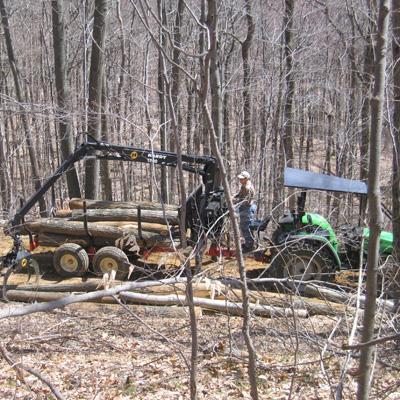Redefining "Productive": Implications for Sustainable Forest Management

Vermont’s forests can be developed, converted to timber, or left intact to provide critical ecosystem services such as wildlife habitat, climate regulation, water regulation, etc. While the market economy is effective at allocating timber towards economic products that maximize its value, it fails to adequately account for production of social and ecological benefits. To prevent excessive development of forest land, Vermont’s Use Value Appraisal (UVA) program offers tax incentives for maintaining forest lands in timber production, but still fails to account for production of several social and ecological benefits.
NSRC researchers surveyed 55 Vermont forestry experts and found consensus that forests be managed for both ecological and economic benefits, but failed to find consensus concerning social benefits. Foresters also agreed that existing property rights should be respected, incentives were preferable to regulations, and redefining “productive use” under the UVA program to include ecological benefits was appropriate. A survey of nearly 400 forest landowners suggested that most would be willing to manage their land for a variety of ecological benefits. To achieve this, they favor education programs, tax incentives, and payment for ecosystem service schemes. Regulations were the least favorite option.
Researchers also examined the Little Hogback Community Forest project, designed by Vermont Family Forests, as a model for improving sustainable allocation of ecosystem goods and services. The model offers many advantages over individual ownership but faces problems with sustainable financing and fails to effectively account for regional and global scale services provided by forests. These findings can help refine policy alternatives for promoting sustainable forestry in the Northern Forest region.
Download printable version [PDF]
Download full final report [PDF]
